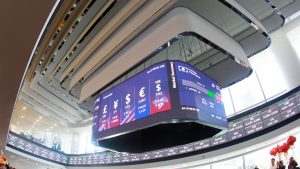Address toxic resilience now

The concept of Filipino resilience is deeply ingrained in the nation’s identity, often celebrated as a virtue that enables individuals and communities to endure and recover from various adversities. In a recent conversation with Dr. Horacio “Junbo” Borromeo, the respected coordinator of AIM MBM class of 1980, he however pointed to the negative aspects of this trait.
As an example, Mr. Borromeo cited how Filipino flood victims are admired in the media for laughing while walking through waist-deep muddy waters. Instead, shouldn’t they be asking what government ineptitude and corruption contributed to the floods? While resilience enables Filipinos to navigate hardships, it can also lead to complacency regarding systemic issues such as corruption and governance failures.
Resilience is the ability to adapt, recover and thrive in the face of adversity, stress or change. Resilient individuals can manage stress effectively and maintain emotional stability during difficult time. Communities that foster resilience tend to recover more quickly from disasters, economic downturns or social crises.
Research indicates that Filipino resilience is often a product of necessity rather than choice. A study published in the Journal of Pacific Rim Psychology assessed the psychometric properties of the demographic and psychological variables influencing national resilience. The findings suggest that while Filipinos possess a robust capacity to withstand challenges, this resilience is deeply intertwined with cultural values and social expectations.
From a cultural perspective, Filipino resilience is encapsulated in the phrase bahala na (come what may) and the cultural trait of pagiging matatag (being strong). Sikolohiyang Pilipino (Filipino psychology) pioneered by Virgilio Enriquez examines indigenous concepts like pakikisama (harmony), bayanihan (community spirit) and tiyaga (perseverance). These traits contribute to resilience and highlight the communal nature of the Filipino coping mechanism. “Bahala na” is a fatalistic outlook that can both empower individuals to face uncertainty, but it discourages proactive problem-solving.
Another study highlighted in Girl Power Talk emphasizes that Filipinos are resilient because circumstances demand it, not necessarily because they choose to be. This perspective suggests that resilience has become a pervasive burden, where the ability to cope is romanticized, potentially overshadowing the need for comprehensive change.
Scholars like Randy David have critiqued the Filipino tendency to “move on” from political scandals and crises without holding leaders accountable. He suggests that while resilience is often celebrated, it also leads to a form of fatalism where individuals accept their circumstances rather than challenge systemic issues. Filipinos are also on constant search for charismatic leaders who promise redemption from oppression and inequality. But what the country needs are strong institutions that transcend personalities.
Critics therefore believe that resilience mask systemic failures with the people adapting to recurring problems instead of demanding better disaster preparedness or government accountability. This has now been termed “toxic resilience” and it leads to normalization of suffering and a lack of collective action to address root causes. People forget and move on, exhibiting short memory which engenders cycles of corruption, inefficiency and injustice to persist. The valorization of endurance can hinder critical examination and accountability.
Resilience is a powerful asset that helps navigate life’s inevitable challenges. However, it should be balanced with self-awareness, emotional intelligence, and the ability to recognize when to either step away from harmful situations or seek the changes that lead to better long-term solutions.
Resilience must be complemented by a proactive stance against systemic issues through critical thinking, leading to a more accountable and transparent society. And the starting point is education and awareness. Implementing educational programs that emphasize ethical behavior, civil responsibility and the importance of accountability can cultivate a more vigilant citizenry. Tailored education measures can help nurture young people’s intolerance for corrupt ad unethical behavior.
Institutions must be strengthened, especially those responsible for enforcing laws and regulations. Government transactions and decision-making processes should be made transparent. And society must collectively condemn and stigmatize corrupt behavior. Public discourse and society and community initiatives are necessary so that Filipinos can move beyond toxic resilience and aim for a more just and equitable society.
And if you believe the thesis that resilience must be combined with a more proactive and vigilant mindset, we can start by choosing leaders who have the heart, character, wisdom, competence and integrity to address these issues. Let us no longer vote into office those tainted with graft and who use their powers more for self-interest like preserving a family dynasty. Let us be more circumspect in looking at the qualifications and background of our set of leaders. We must shift away from toxic resilience through active citizenship.
The views expressed herein are his own and do not necessarily reflect the opinion of his office as well as FINEX.
Benel Dela Paz Lagua was previously EVP and chief development officer at the Development Bank of the Philippines. He is an active FINEX member and an advocate of risk-based lending for SMEs. Today, he is independent director in progressive banks and in some NGOs.




